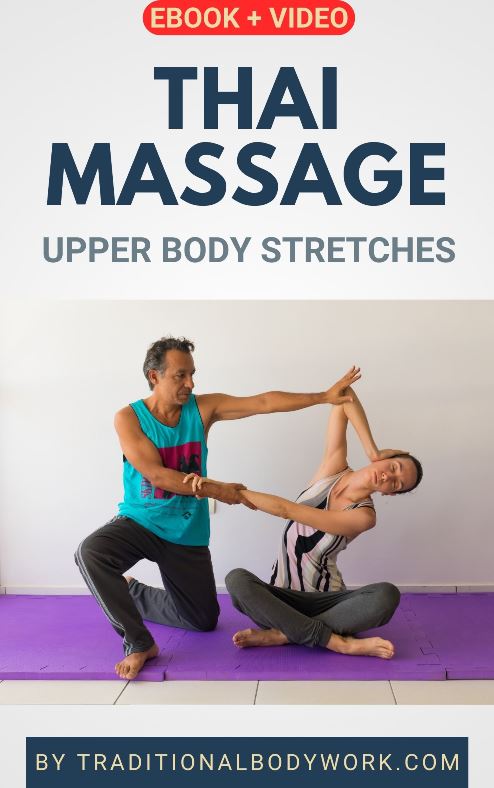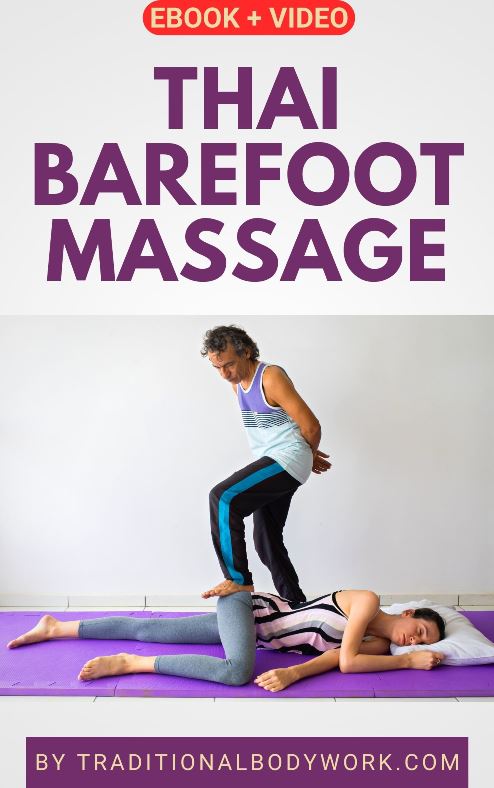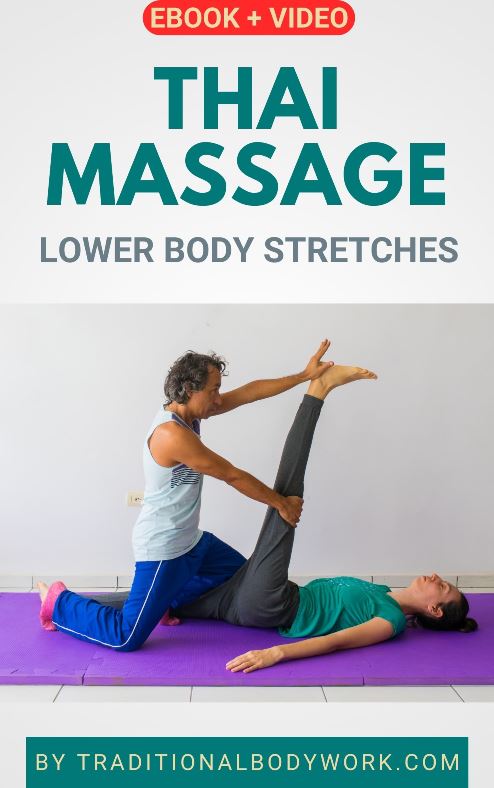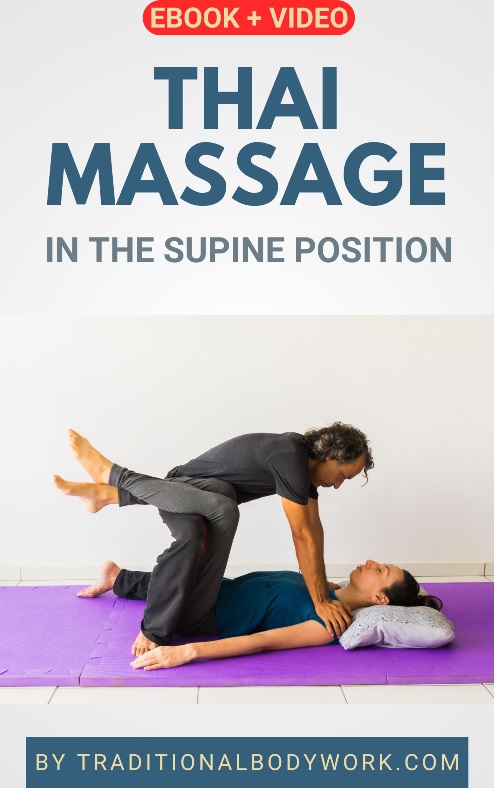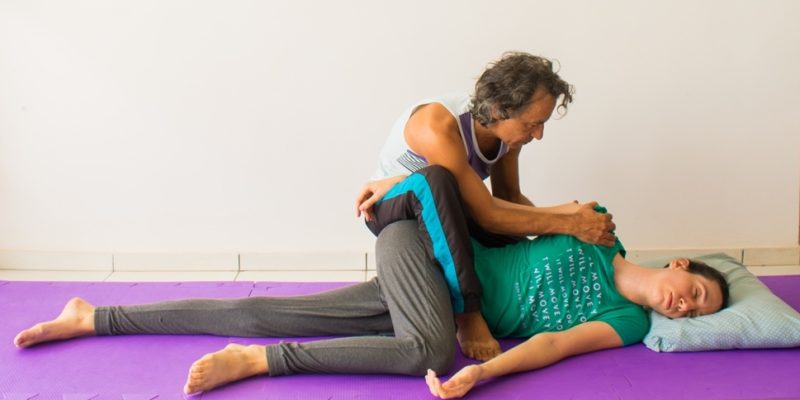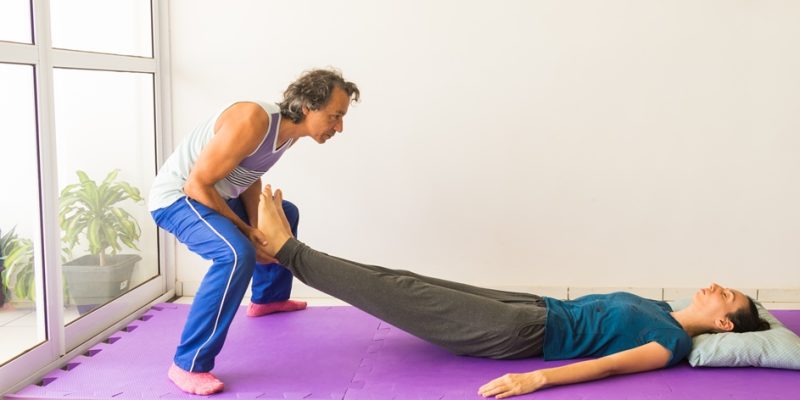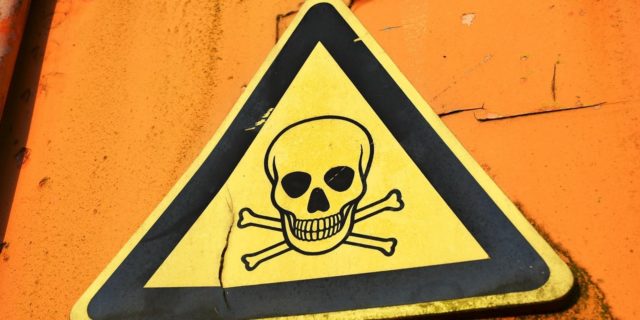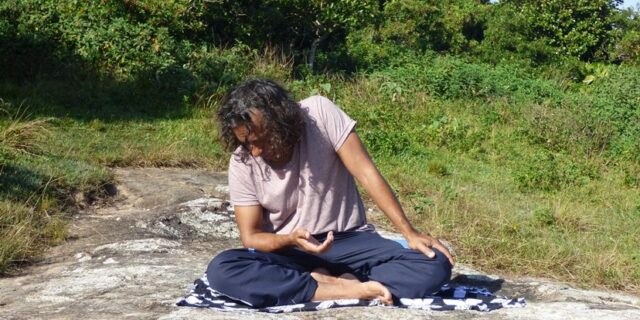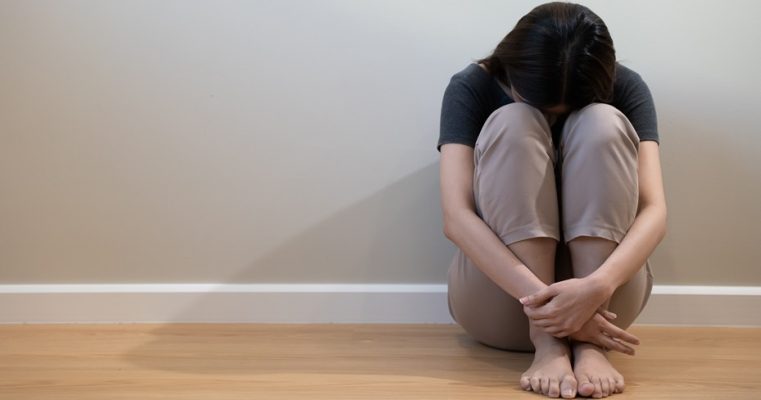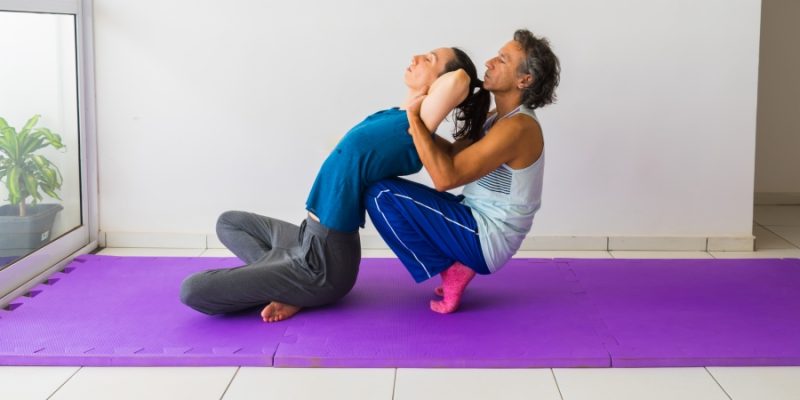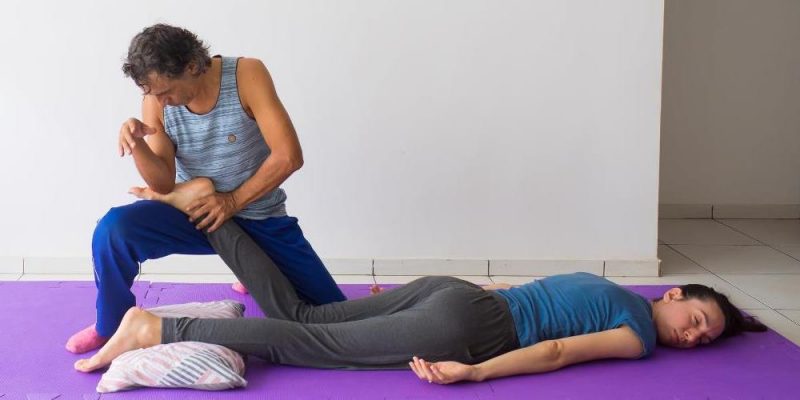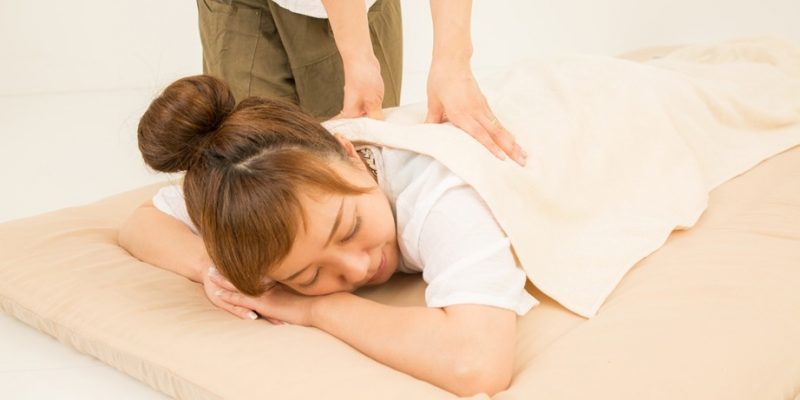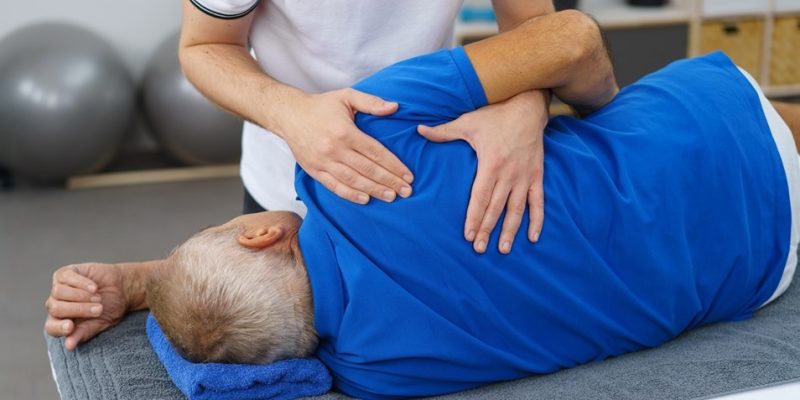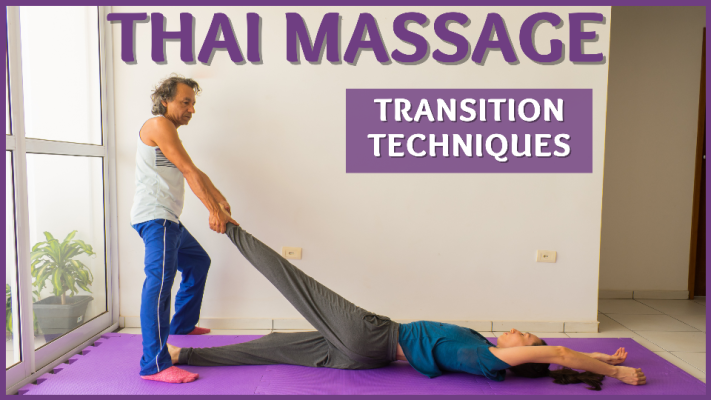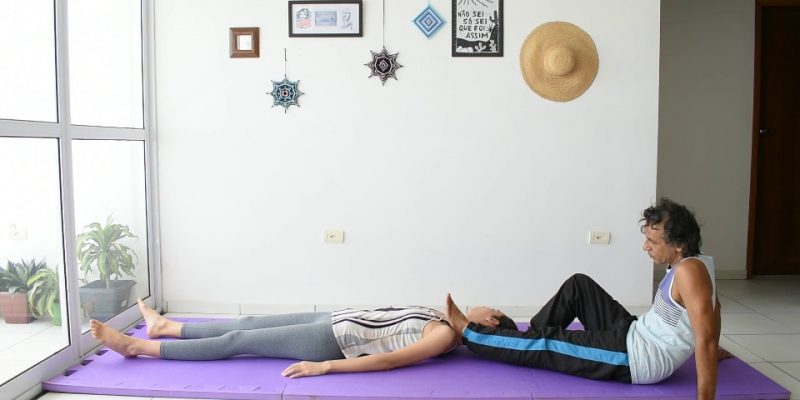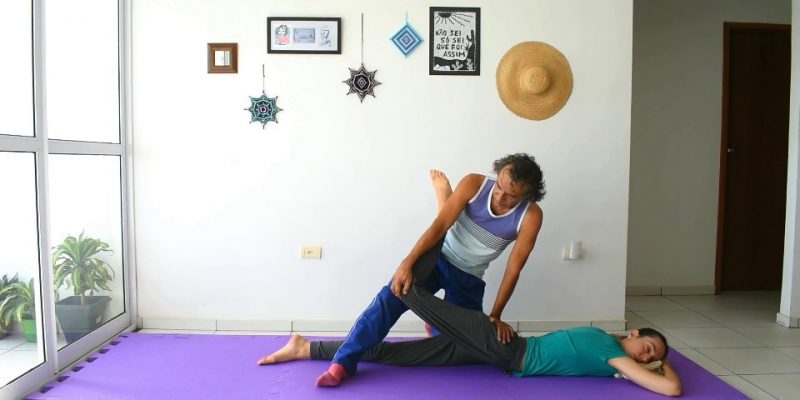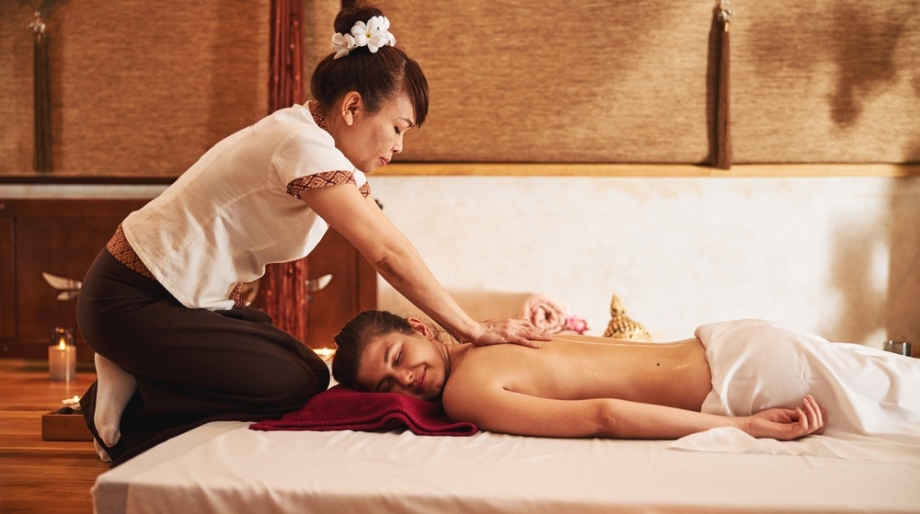
Back pain is a very common health complaint. Lower back pain — also known as low back pain or lumbago — occurs most, but mid and higher back pains that extend to the shoulder and neck region are certainly not uncommon either.
Pains may be the result of a musculoskeletal issue, some types of diseases and disorders, (repetitive) strains, sustained postural anomalies, stress and anxiety, overweight or obesity, or pregnancy, just to name a few causes.
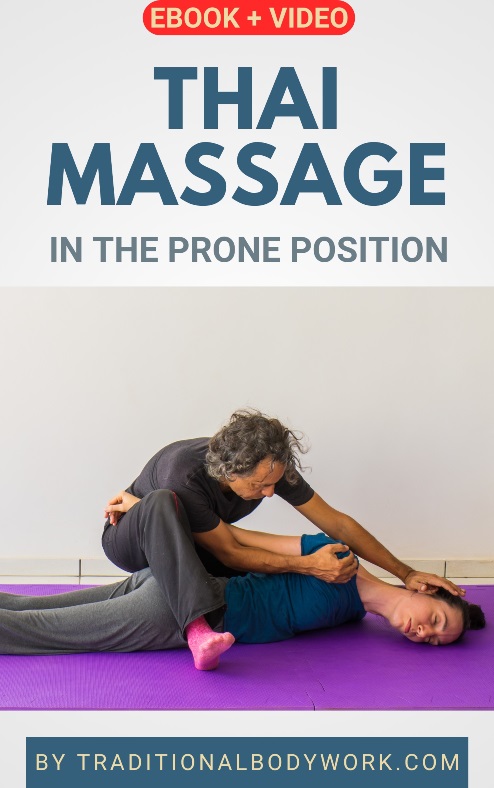
A popular way of getting relief of back pains is taking Back Massage treatments, which includes Thai Massage sessions that are specifically focused at working on the back. In fact, commercial Thai Back Massage offerings are plenty to be found in the many spa massage parlors around the world, and most of those treatments will indeed give the receiver some kind of temporary relief.
However, to structurally resolve back problems it would be a better approach to having a Thai Whole-Body Massage that specifically aims at tackling back pains, and not a massage that exclusively works on the back. The reason for the latter is that back pains are usually not resolved by only manipulating acupressure points on the back, or by otherwise working on the back muscles or the spine.
For instance, back pains quite often have their origin in tensed or contracted abdominal muscles, tight leg muscles — notably the hamstrings — tight buttocks i.e. glutes, or tight neck muscles. Hence, alleviating or curing back pains rather needs a holistic approach, one that typically involves a full-body treatment, or at least an approach which — apart from the back — also takes several other body parts into account.
At any rate, if a Thai Massage practitioner only works on the receiver’s back, the treatments are usually carried out with the receiver lying in the prone position (lying on the belly) or in the side-lying position (for instance for pregnant women or for people who have difficulties lying on their belly, face down).
The masseur will often use hand palm pressure and acupressure with the thumbs along the spinal column, usually starting just above the sacrum and going up until the base of the skull (several times going forth and back along the spine), typically addressing the Thai Energy Channels Sen Ittha, Sen Pingkhala, and the extensions of Sen Kalathari.
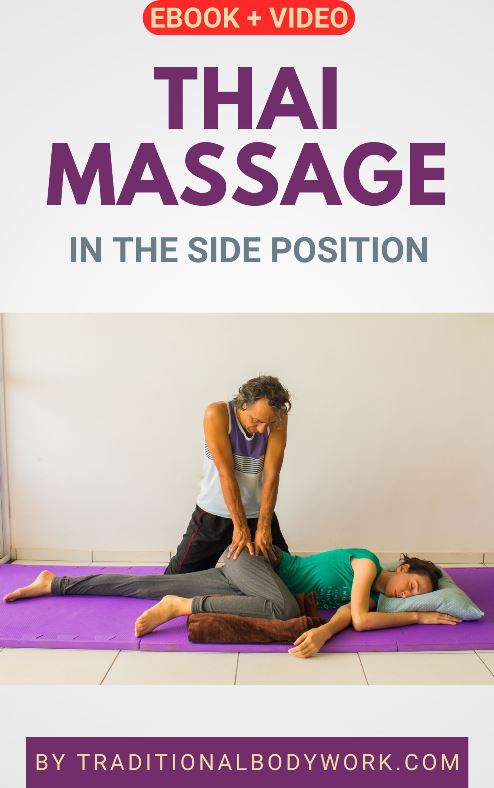
Massage, pressure, and acupressure will also be given on and around the shoulder blades (scapulae) and the neck, and on the entire horizontal line just above the sacrum and buttocks.
In addition, the receiver may also be placed in the seated and/or supine (lying on the back) position in order to carry out a variety of spinal twists (i.e. torso stretches) or other back stretches as an extra treatment option to relieve back pains.
Traditionally, a Thai Back Massage is given with the receiver being clothed, but in modern spa-like commercial Thai Massage settings you will often see that the back is exposed and that the therapist will use oils, creams, and/or Thai herbal pouches as an aid in the massage.
On the whole, a Thai Back Massage in a massage parlor usually doesn’t take very long, that is, about thirty to maximum forty-five minutes.


